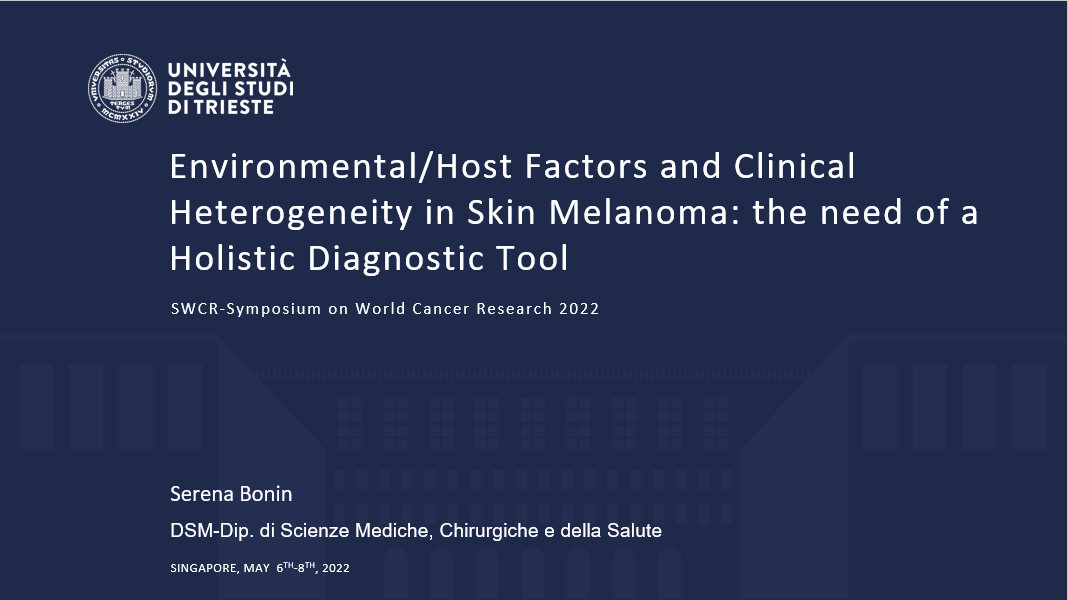Singapore, 6-8/05/2022.
iToBoS project was presented at the conference "Environmental/ host factors and clinical heterogeneity in skin melanoma: the need of a holistic diagnostic tool", in the World Cancer Research Symposium (SCWR 2022).

The presentation was made by Serena Bonin and Iris Zalaudek, from the Department of Medical Sciences (DSM) of University of Trieste, Italy, partner of the project.
Abstract
Cutaneous melanoma incidence is increasingly growing mainly among Caucasians. The development is driven by cooperating environmental and host-related risk factors. The incidence of melanoma varies by sex, the latter being an independent factor for differences in the prevalence of melanoma for specific anatomical sites. Site specific prevalence of melanoma is also influenced by environmental variables such as the altitude of residence. Molecular profiling of cutaneous melanomas and their specific survival have been associated with altitude of residence [1]. Furthermore different miRNAs and transcriptomic profiles have been shown to vary with different geographical areas and residences altitude supporting for possible regulatory mechanisms induced by environmental conditions, such as hypoxic environment and/or higher UVR exposure [1].
Using dermoscopy allows for an early detection of melanoma, nevertheless disease progression is still highly variable among patients. Total body skin examination to search for typical melanoma signs and a highly patient-tailored tool for early diagnosis of melanoma is needed. In this perspective, iToBoS project [2], funded by the European Commission H2020 program, aims at integrating total body scan images with patient data in a machine learning system for a new dermoscopic diagnostic tool to achieve patients’ risk categories with respect of host and environmental data.


References
[1] De Martino E, Brunetti D, Canzonieri V, Conforti C, Eisendle K, Mazzoleni G, et al. The Association of Residential Altitude on the Molecular Profile and Survival of Melanoma: Results of an Interreg Study. Cancers. 2020;12:2796.
[2] iToBoS- Intelligent total body scanner for Early detection of Melanoma- (Grant Agreement Number 965221)
Biography
Prof. Serena Bonin is driving the laboratory of histopathology and molecular dermatology in the Department of Medical Sciences at the University of Trieste, Italy. Her main field of research is the research of molecular biomarkers in oncology, with specific interest on skin melanoma. She is also involved in ISO and CEN working groups for the standardization of pre-analytical processes in IVD. She has published more than 120 articles in scientific journals.
More details at https://www.symwcr.com/
